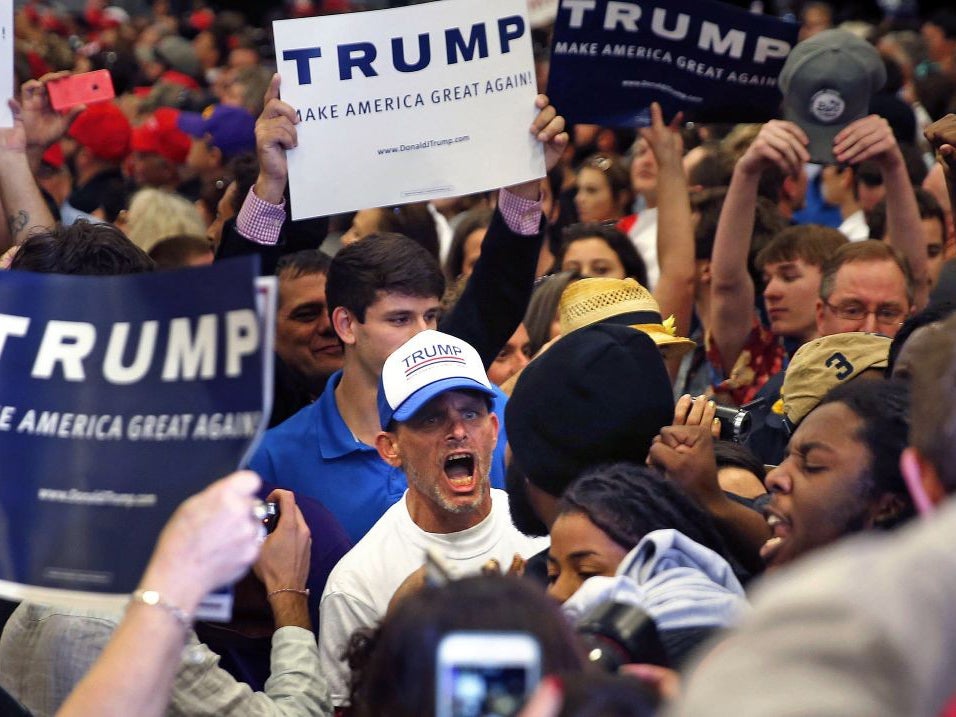Brexit and Trump are symptoms of a wider disease – stopping them will only make the problem worse
The deposition of Trump would pour petrol over the fire of those who already distrust the American state. It will not, as some hope, lead to 'Politics As Normal'. The furies that produced it will be back: bigger, nastier and angrier

Heady, heady times. How could they not be? Here in the UK, the EU’s refusal to move to the second stage of Brexit negotiations, the shifting of Labour’s position and the intransigence of some on the Tory backbenches has excited those who think Brexit can be avoided altogether.
In the US, the stunning indictments of Paul Manafort and Richard Gates, and the possibly more significant arrest of George Papadopoulos, has left the President looking increasingly vulnerable. Across the western world, those implacably opposed to Donald Trump’s presidency wait with glee for the news of the knock at his door. Breathless Twitter super-threads turbocharge the excitement. The chattering classes' bogeymen are in retreat.
In the aftermath of the EU referendum and the US election, it was impossible to spend time in liberal strongholds without discussion veering towards despair. But the mood music has gradually changed. Glimmers of hope appeared – Trump was surely too crazy to last, Brexit could be reversed either by a second referendum or some convoluted parliamentary chicanery. Now, those cautious optimists have become sunny soothsayers: The Bad Things will be defeated. How could they not be?
I don’t claim to have the answers on this. I suspect things don’t look great for Trump but I wonder if Republicans in Congress, feeling the heat from his supporters, would ever vote to impeach him. Likewise, the more you look into Brexit, the harder it is to see a jumping-off point from the runaway train that ends with our crashing out of the EU on 31 March 2019 – deal or no deal.
But the bigger question is: does any of this matter? Because glaringly absent from any of this discussion is The Other Side. The huddled masses. The 63 million people who voted for Trump, the 52 per cent of voters who demanded we leave the EU. Have they been consulted on any of this?
Think of those you know who are most buoyed in their cheerleading for the overturn of the Brexit result or the removal of Trump from office and I bet they have no plan beyond these goals: they are an end in and of themselves. Cut out the poison, their logic goes, and the patient will heal. They are wrong. Dangerously so.
Brexit, Trump and the wider rise of populism in the west are the symptoms of the disease, not its causes. It is painful that this still needs saying but it clearly does. For her outstanding and under-read work, Strangers in Their Own Land, Arlie Russell Hochschild spent five years in Louisiana, tackling the paradox of a state which consistently votes for less environmental protection despite being slowly suffocated – literally – by big-business polluters. What she discovered should feel familiar to readers on this side of the Atlantic as well: proud communities and people, opposed to their government’s helping hand because they perceive it as a challenge to their honour, bewildered by the rapid pace of change in a country they once called theirs.
Recent polling shows that while a large chunk of those who voted Remain in the referendum have hardened their position, there is little evidence of buyer’s remorse amongst Leavers. Put simply, a second referendum held today would not result in a landslide win for the so-called Good Guys. It would merely lead to deeper resentment on both sides.
Likewise, the deposition of Trump would pour petrol over the fire of those who already distrust the American state. It will not, as some hope, lead to “Politics As Normal” and the scrapping of the wall. The furies that produced it will be back: bigger, nastier, angrier.
Once the dust began to settle after the six months which shook the western world, we should have started thinking seriously about the causes. Was it cultural? Economic? Spiritual? Did we give too much or too little? Those debates have never really happened in earnest, because they ask us to go into deep and difficult places that many thought we had moved beyond. They ask us to challenge our assumptions and make passionate arguments for things we hoped society was agreed on. Far easier to sneer at the politicians and the coming disaster, to mock the fools who voted for this mess. Far easier to say that, yes, we do need a debate – always “frank” or “serious” – but then quickly move on.
In 2015, as Ukip began to slide in the polls and Nigel Farage failed in his seventh attempt at becoming an MP, we forgot about the chill winds that had blown through politics and liberal society. The centre, it seemed, had held. Remain would win handsomely. But the forces that drove Ukip didn’t disappear and a year later their raison d’etre was realised. If we think that by simply manipulating our way out of Brexit, dumping Trump through legal means or narrowly stopping European populists through uneasy coalitions we have won and the enemy has been vanquished, we are deluding ourselves and we will ultimately reap the whirlwind of the political repercussions.
We will be defeated, again. How could we not be?
Paul Ovenden is the former Labour Party spokesperson






Join our commenting forum
Join thought-provoking conversations, follow other Independent readers and see their replies